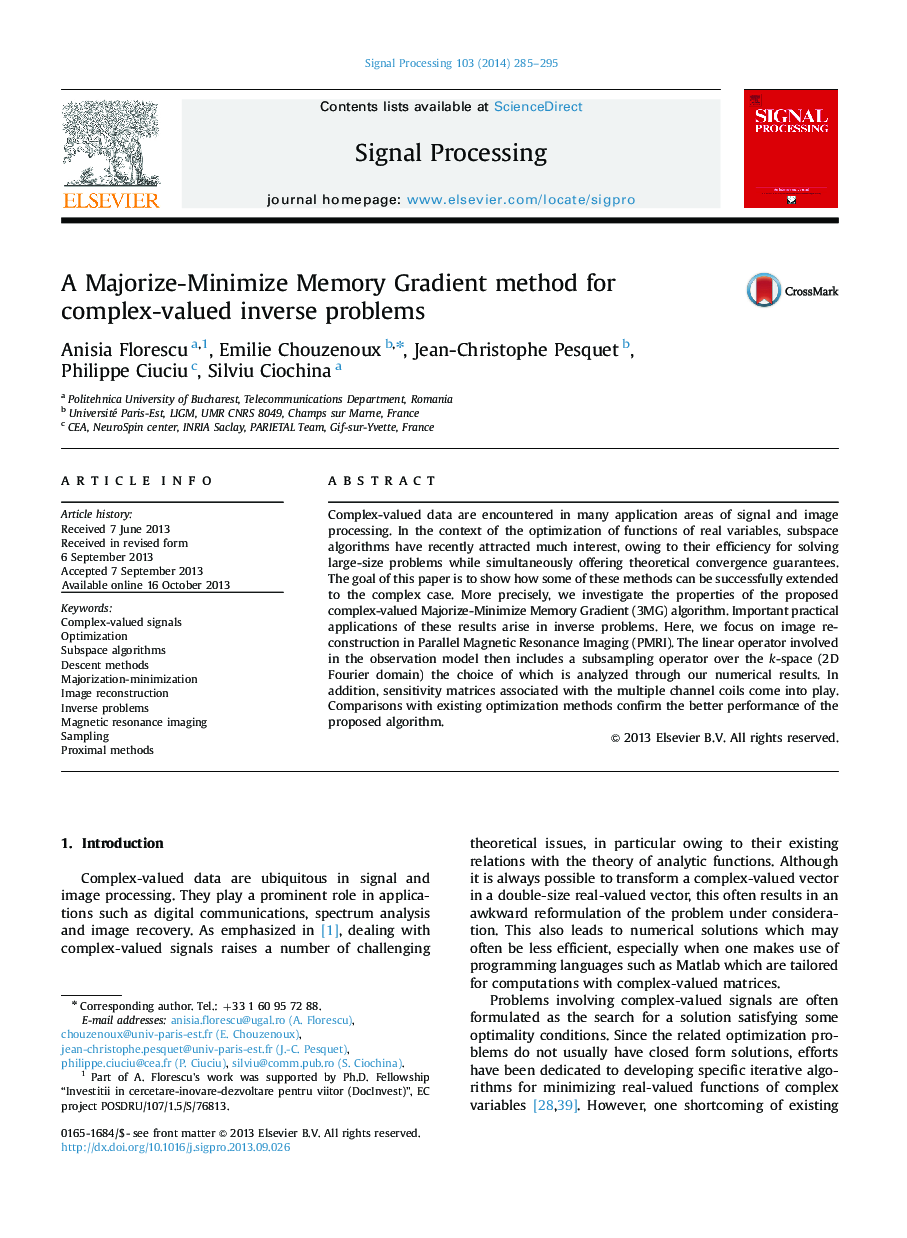| Article ID | Journal | Published Year | Pages | File Type |
|---|---|---|---|---|
| 562931 | Signal Processing | 2014 | 11 Pages |
•An extension of the Majorize-Minimize Memory Gradient algorithm for minimizing functions of complex variables is proposed.•The convergence of the algorithm is proved under weak assumptions.•A novel application of the algorithm to parallel Magnetic Resonance Imaging reconstruction is proposed.•Through simulations on real data, the algorithm is shown to outperform recent optimization strategies in terms of convergence speed.•The algorithm can handle various subsampling schemes, both convex and nonconvex penalization functions and different possibly redundant frame representations.
Complex-valued data are encountered in many application areas of signal and image processing. In the context of the optimization of functions of real variables, subspace algorithms have recently attracted much interest, owing to their efficiency for solving large-size problems while simultaneously offering theoretical convergence guarantees. The goal of this paper is to show how some of these methods can be successfully extended to the complex case. More precisely, we investigate the properties of the proposed complex-valued Majorize-Minimize Memory Gradient (3MG) algorithm. Important practical applications of these results arise in inverse problems. Here, we focus on image reconstruction in Parallel Magnetic Resonance Imaging (PMRI). The linear operator involved in the observation model then includes a subsampling operator over the k-space (2D Fourier domain) the choice of which is analyzed through our numerical results. In addition, sensitivity matrices associated with the multiple channel coils come into play. Comparisons with existing optimization methods confirm the better performance of the proposed algorithm.
